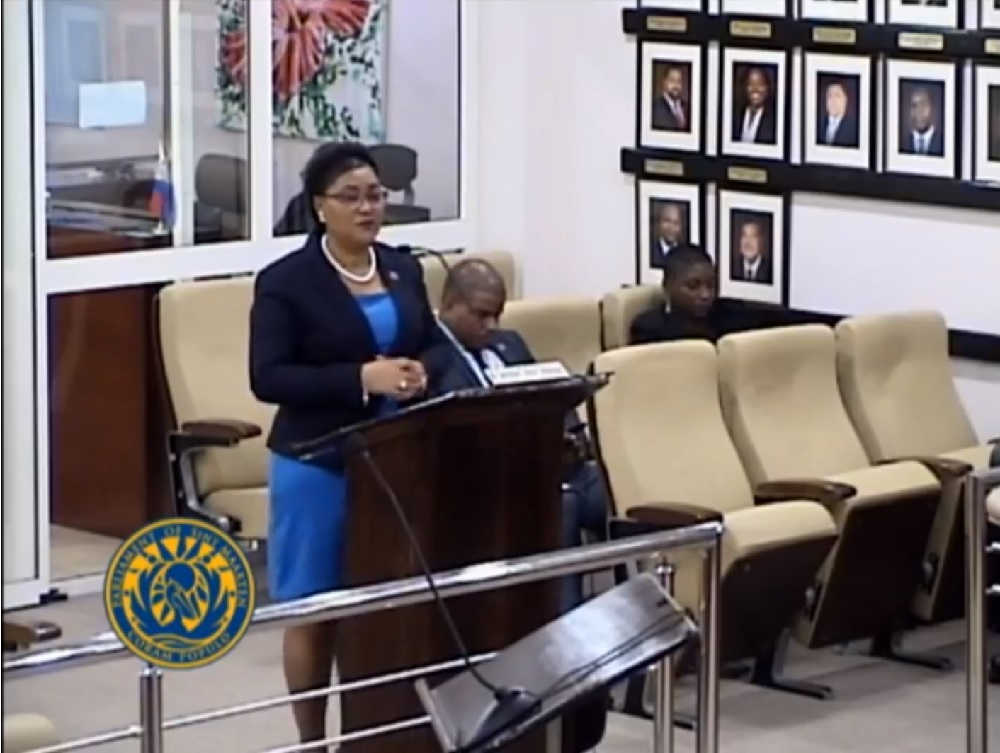Political instability hampers functioning Ombudsman

PHILIPSBURG — Political instability is a major challenge, Ombudsman Gwendolien Mossel writes in the introduction to her office’s 2020 annual report. “Responses by government to queries of the ombudsman as well as the execution of recommendations were met with constant delays. The recommendations issued by the ombudsman in various systemic investigations such as the Cadastre, Rental Tribunal and Princess Juliana International Airport Exploitation Company (PJIAE) remain unexecuted.”
Between its establishment in 2010 and 2020 the ombudsman investigated 680 complaints and handled 2,464 so-called information windows. In 2020 the Ombudsman received 47 complaints of which five were retracted for different reasons; 32 were complaints about ministries and ten about private entities with public authority. The total includes two systemic investigations.
Justice has consistently been the ministry with the most complaints (20 percent) followed by the VROMI-ministry 16 percent).
“The lack of full comprehension and acceptance by government (meaning: ministers) about the Ombudsman’s role continues to be a key challenge,” the report states. “This is inseparably linked to the many changes in government over the past ten years. This lack of continuity of the Council of Ministers, as the previous Ombudsman would continuously say, is akin to moving two steps forward and three steps backwards every time.”
The office of the Ombudsman continues to struggle with non-responses from the government to its investigations. “Many ministers have previously been members of parliament and have applauded and championed the role and importance of the institution but a change in attitude is often observed when the switch is made to the executive branch.”
The report states that the Council of Ministers lacks the full comprehension of the Ombudsman institution. “It has consequently not yet entirely accepted the Ombudsman’s role in our democracy.”
The Ombudsman issued 56 recommendations in 2020, two more than the previous year. The recommendations are about the proper standard of conduct. Most of them concern active and adequate information provision (14) and adequate organization of services (10).
The report devotes special attention to a complaint filed by the Social Economic Council (SER) against the Ministry of General Affairs. The question at hand was whether the secretary-general of said ministry was structurally undermining the SER’s independence. The Ombudsman concluded that there is insufficient evidence to support the complaint but it notes that the investigation “underscored the importance of the responsibility of both parliament and government recognizing and facilitating the independent functioning of the SER.”
In its report about the complaint, the Ombudsman qualifies the government’s notion that the independence of the SER is not equal to the independence of the high councils of state as inaccurate. “In terms of their independent function vis-à-vis government, the institutions are equal in the eyes of the law.”
The Ombudsman issued the following recommendation: “Government and in particular the Minister (Ministry) of AZ must respect the independence of the SER and actively seek ways and means to ensure such e.g., revisit all services between government and SER, revisit/draft the policies to effectuate smooth execution, reinforce the policies, increase awareness within the Ministry/Parliament.”
The annual report furthermore reveals that the systemic investigation into the towing policy of the police force took twelve months “due to non-responses from KPSM.”
During the past ten years, the Ombudsman conducted six systemic investigations. They concern the Cadastre and Land Registry, the Dismissal Advisory Committee, the Rent Tribunal, Disaster Risk Reduction and Management, the procurement management policy of the airport and the towing policy of the police force.
























